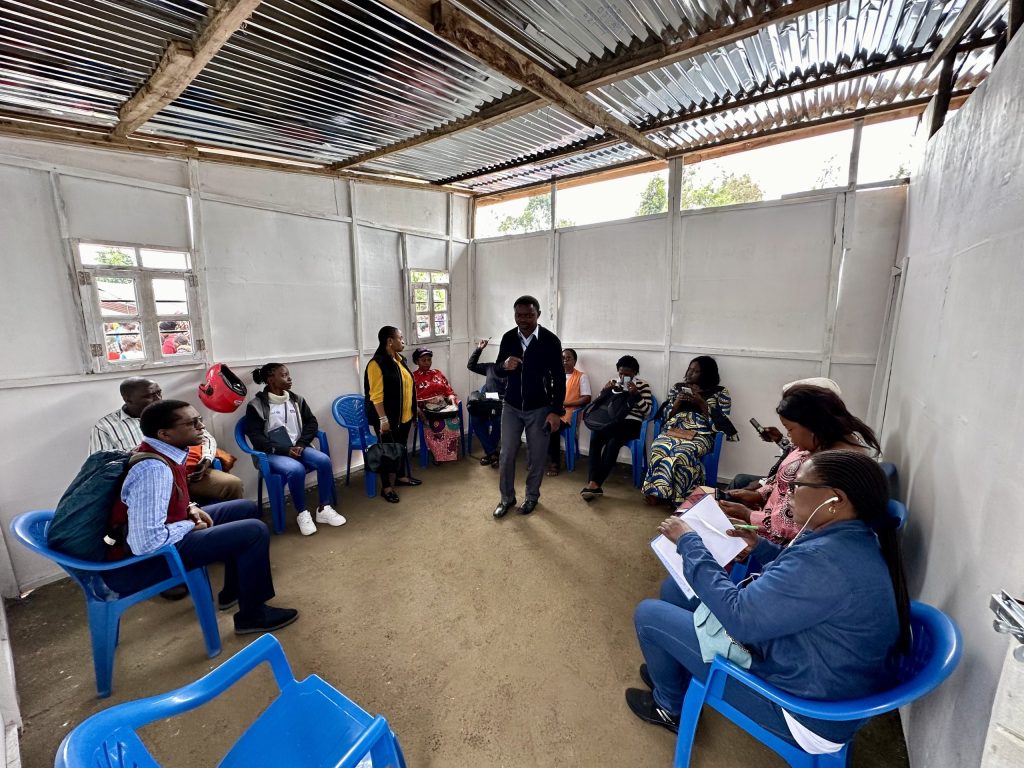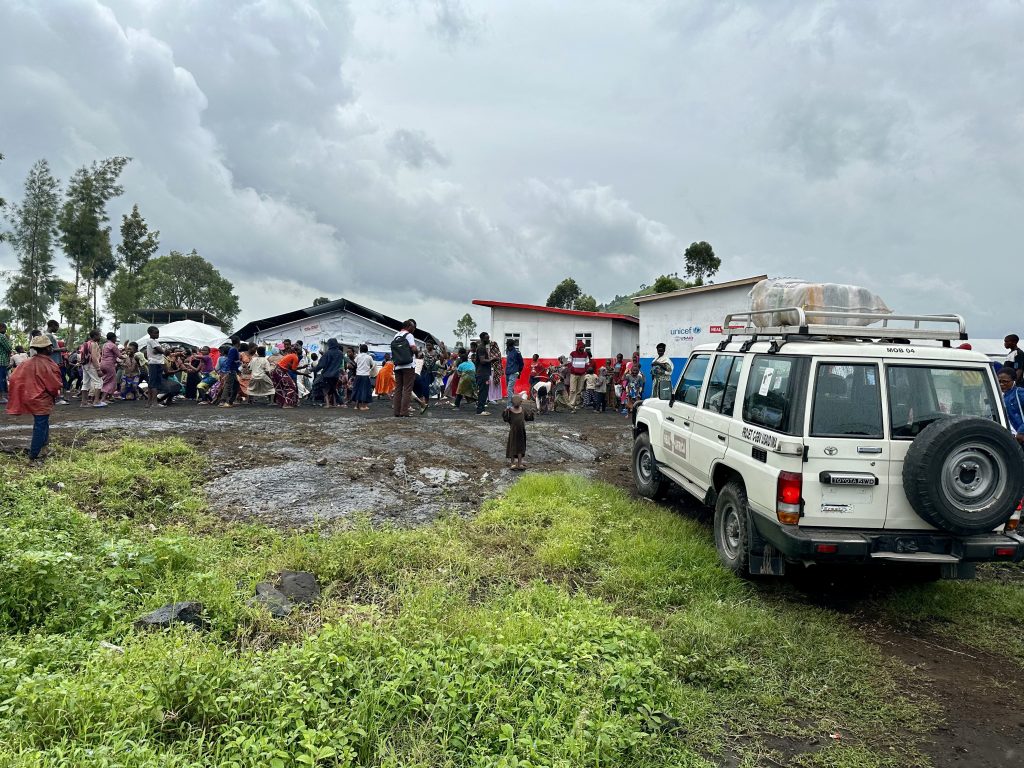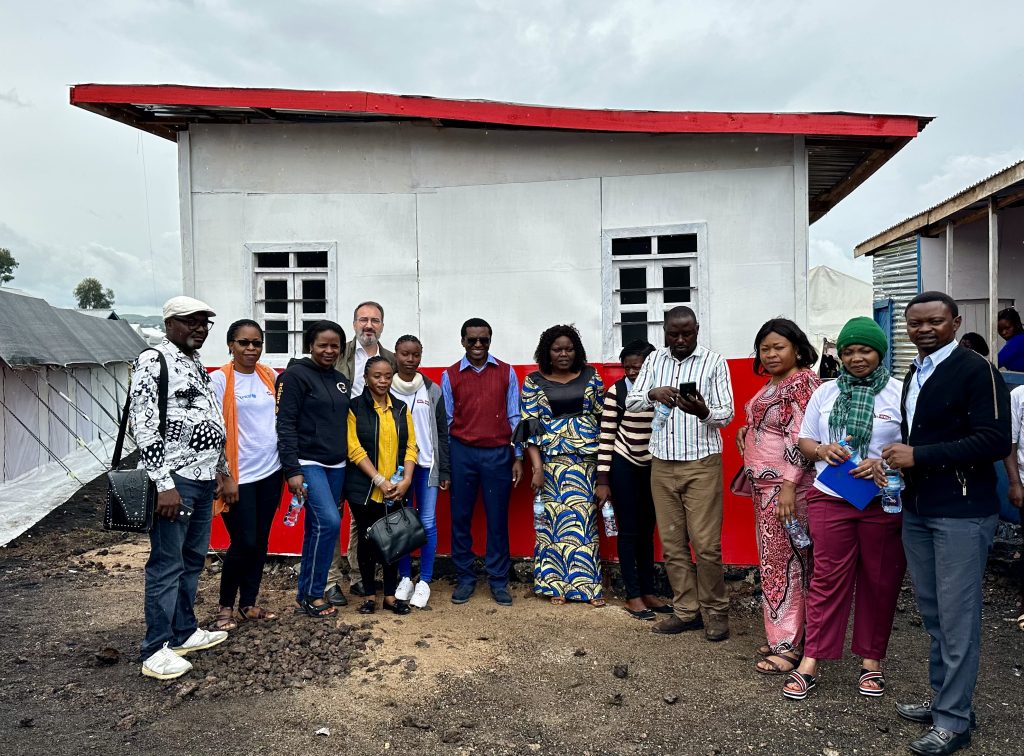As the conflict in the eastern region of the Democratic Republic of the Congo (DRC) continues to escalate, Physicians for Human Rights (PHR) medical partner HEAL Africa is providing intensive care to survivors of sexual and gender-based violence. We spoke with HEAL Africa to learn more about the provision of health care services in a conflict context and the organization’s innovative approach to caring for survivors of sexual violence, including through the use of tools co-developed by PHR.
French translation available here
In the eastern Democratic Republic of the Congo (DRC), rising levels of violence have shifted a very precarious security context into a deadly conflict crisis. In recent months, intensified fighting has led to massive population displacement. According to the International Organization for Migration (IOM), the number of internally displaced persons (IDPs) in the DRC has reached a record high of 6.9 million people.
Communities in eastern DRC, such as those in North Kivu, where Physicians for Human Rights (PHR) works, have been particularly affected by devastating levels of conflict-related sexual violence, including more than 90,000 reported cases in 2023 alone. Children in particular have been victims of horrific violence.
“What we are seeing in North Kivu is a full-blown crisis, where atrocities against civilians continue with impunity… This is of particular concern for survivors of traumatic violence due to the conflict, including children, who are in urgent need of medical care and psychosocial support ”
Joyeux Mushekuru, PHR’s coordinator in the DRC
“What we are seeing in North Kivu is a full-blown crisis, where atrocities against civilians continue with impunity,” said Joyeux Mushekuru, PHR’s coordinator in the DRC. “A staggering number of people have been forcibly displaced from their homes, making it almost impossible for them to access health care. This is of particular concern for survivors of traumatic violence due to the conflict, including children, who are in urgent need of medical care and psychosocial support as well as minors at risk of gender-based violence.”

HEAL Africa: A glimmer of hope
To provide care to survivors of conflict-related sexual violence in North Kivu, PHR has partnered with clinicians at HEAL Africa, which serves as a one-stop center for survivors to access medical, psychosocial, and legal support to the most vulnerable populations in the DRC. “It is imperative in this context to establish a holistic and inclusive care program,” said Ndungo Sakoul, Program Director at HEAL Africa.
Dr. Serge Kahatwa, former medical director of HEAL Africa, noted that by ensuring survivors of sexual violence have access to comprehensive care in a single facility, HEAL Africa helps prevent further trauma for survivors and encourages collaboration among professionals to make multi-sectoral care available.
HEAL Africa’s facilities remain a crucial lifeline for millions of people in eastern DRC who remain displaced by the recent escalation of conflict, particularly those in huge camps for internally displaced persons in North Kivu.
“HEAL Africa’s mission is to care for each person holistically. We help people regain their dignity and reintegrate into society, giving them the tools to become independent and create their own means of survival,” said Dr. Kahawta.
PHR began working with HEAL Africa in 2014 through capacity development efforts with clinicians and actors in the law and justice sector, including the police, to hone their forensic examination skills and build capacity to better use this evidence to prosecute perpetrators of sexual violence. Together, PHR and HEAL Africa have successfully piloted innovative approaches to documentation and collection of forensic evidence, including through MediCapt, PHR’s award-winning mobile app to support the secure documentation of forensic evidence of sexual violence.


Addressing the challenges of health care delivery in eastern DRC
HEAL Africa’s facilities remain a crucial lifeline for millions of people in eastern DRC who remain displaced by the recent escalation of conflict, particularly those in huge camps for internally displaced persons in North Kivu. HEAL Africa has been working to overcome the growing security concerns – and the resulting logistical and human challenges – in order to mobilize teams of health care providers in areas that need them.
“It is crucial for all these children to have a space where professionals can collect their testimonies and refer them to medical and social care structures… Without a dedicated space to welcome and listen, they would not know where to go for holistic support, care, and justice for the crimes they have suffered.”
Georges Kuzma, expert consultant in police and justice at PHR
As the front line of care for populations fleeing violence, HEAL Africa’s clinicians report dire levels of sexual violence, especially affecting children. In the Bulengo camp, a few miles from the city of Goma, HEAL Africa’s staff report that an average of five to seven survivors arrive every day for treatment, averaging six child survivors of sexual violence each week. Dozens of cases were identified by HEAL Africa in December 2023 alone. HEAL Africa staff report an increasing deterioration in the living conditions of displaced people with each passing day due to lack of material resources, resurgence of infectious diseases (such as cholera, measles, and other diarrheal diseases) and malnutrition due to insufficient access to food and water.
In response to this crisis, HEAL Africa and PHR have partnered to address the needs of child survivors of conflict-related sexual violence in the Bulengo camp. In 2023, PHR and HEAL Africa created a child-friendly interviewing facility dedicated to supporting child survivors living in the camp. Drawing on evidence-based best practices for designing child-friendly spaces in humanitarian settings; guidance from key interview protocols for child survivors of sexual violence; and the expertise of multi-sectoral stakeholders in North Kivu and the DRC, HEAL Africa and PHR are working to pilot this initiative to facilitate safe documentation of the traumatic violence these children have experienced. The space continues to be a source of ongoing support for survivors.
“It is crucial for all these children to have a space where professionals can collect their testimonies and refer them to medical and social care structures,” explains Georges Kuzma, expert consultant in police and justice at PHR. “Some of these teenagers have become the support for their younger siblings, following the disappearance of their parents. Without a dedicated space to welcome and listen, they would not know where to go for holistic support, care, and justice for the crimes they have suffered.”
Building a better future
As violence continues to grow in the eastern region of the DRC, health workers such as those working with HEAL Africa are a lifeline for the millions of people displaced by the conflict. Whether it is collaborating to support child survivors in IDP camps or pursuing other innovations to safely collect and secure evidence of violations, PHR is proud of its continued partnership with HEAL Africa.
We are inspired by the resilience of health care professionals in eastern DRC and commend their innovative approaches to reaching the communities they serve. Enormous challenges nevertheless remain. To provide the necessary care to survivors, PHR is calling on national and international stakeholders to provide urgent support to the health sector in the DRC, especially to organizations that can reach those most affected by the conflict, such as HEAL Africa. Survivors have the right to health, human rights, and justice for the atrocities committed in the conflict.
Learn more about the work of HEAL Africa here.
